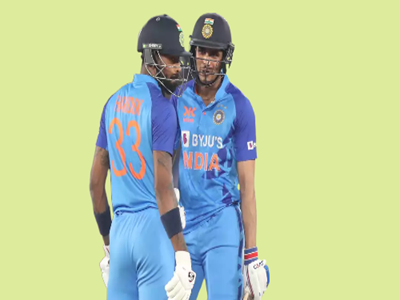The Asia Cup 2025 has seen some intense cricket, but a significant controversy has erupted outside of it. The India vs. Pakistan match marked a turning point in the tournament, with both teams accusing each other of violating the bounds of decorum and the spirit of the game, leading to penalties imposed on Suryakumar Yadav and Harish Rauf by the International Cricket Council (ICC). But to find out the truth, let’s take a look at the events that led to the incident.
The Setting: Politics, Rivalry, and Tension
Tensions between India and Pakistan are always high, and this rivalry is primarily political, as evidenced by the attack by Pakistani terrorists in Pahalgam, Kashmir, earlier this year, which killed several Indians. The terrorists then told women to go and report their grievances to the Modi government. The Indian government responded with Operation Sindoor, a water blockade, and military force, leading to accusations from any public comment on the ground.
On 14 September 2025, India and Pakistan faced off, led by Suryakumar Yadav. Having defeated Pakistan, India secured a resounding victory. But after the match, instead of talking about his cricket, Yadav said one thing in the presentation:
“We want to dedicate the victory to all our armed forces who have shown great bravery … Our thoughts are with the families of the victims of the Pahalgam terror attack.”
The India captain Suryakumar Yadav’s refusal to shake hands with Pakistan’s captain sparked a major controversy and became a topic of discussion. While it’s the norm to shake hands during the toss and after the match, the Pakistan Cricket Board has cited Yadav’s refusal to shake hands as a violation of etiquette and the spirit of the game, which amounts to sending a political message.
The Complaint & Hearing: Yadav Before the Referee
The PCB filed a complaint against Suryakumar Yadav. Following this, Yadav appeared for a hearing before ICC match referee Richie Richardson in Dubai. His governing body and BCCI officials fully supported him. Yadav denied any wrongdoing and stated that he had no intention of bringing politics into the game. The referee cautioned him against making statements that could be considered political.
The report already warns that if you commit such an offense, it will be considered a level 1 breach of the ICC code.
By the way, after the verdict was announced, the results went beyond those initial parameters.
The Pakistani Response: Rauf, Farhan, and Gestures
The Super 4 match on September 21st, which featured two Pakistani players, Harish and Shahid Farhan, again stirred his emotions. He incurred the BCCI’s displeasure and logged an official complaint with the ICC.
The allegations were serious:
- Haris Rauf was accused of flashing a “6-0” sign towards the media and the Indian side. The symbol is not related to the Indo-Pak war or the military; it is seen as an emotional sign of conflict.
- Sahibzada Farhan, Some reports said that he even made a gesture of shooting down a plane, which was considered a way to provoke the opposing team or fans.
Both players said to themselves that we are innocent. This was not political. And thier trial was also overseen by Richardson.
Ultimately, Pakistan batsman Sahibzada Farhan was not fined but was only warned, while Suryakumar Yadav and Rauf were fined.
The Verdicts: Fines and Fallout
- Suryakumar Yadav was fined 30% of his match fee after a hearing by ICC match referee Richie Richardson. But India has reportedly filed an appeal against this decision.
- Harish Rauf was also fined 30% of his match fee by the ICC match referee after a hearing.
- Sahibzada Farhan was not fined but was only warned.
The ICC stated that such gestures or statements were considered to pose a risk of politicizing the game. Such behavior constitutes a breach of the rules of cricket and requires penalties to be imposed if the integrity of the game is to be maintained.
The BCCI and PCB can appeal, as they have the option. Some observers say that this is not a simple ban but rather a harsh one, ensuring tensions between India and Pakistan in 2025.
Significance and Broader Implications
Match fees aren’t as high as the penalties for indiscipline in cricket. A few key points emerge.
- Sports vs. Politics: SuryaKumar’s was considered political. But such statements are often emotional, and critics say the ICC should have looked at the “spirit” and “context” of the statement, not just the statement itself.
- Precedent for Behavior: Imposing a 30% penalty is a significant measure. It sends a message to players that they must control their emotions and maintain good behavior during any competitive match.
- Tension on Every Front: Refusing to shake hands is not a normal thing. But doing so creates animosity that can fuel the tournament.
- Appeal Watch: As previously reported, the BCCI has expressed the possibility of challenging this decision. If an appeal occurs, the ICC’s decision-making process, formula, and fairness will be further debated and changed.
- Fan and Media Reaction: Fans and supporters of both sides are praising the match, while others are criticizing it, due to which the impartiality and credibility of the match referee have come under question.
Read Also : ICC Rejects Pakistan’s Plea Against India Match Referee
Closing Thoughts
The incident at the 2025 Asia Cup underscores the fact that cricket today is not just a game of runs and wickets; it’s also a game of emotions, national identity, and media sensitivities. Every comment, gesture, and behavior by players is highlighted. The ICC’s role is to maintain balance in this tense atmosphere—but it’s not easy.
The fines imposed on Suryakumar Yadav and Haris Rauf reflect the ICC’s intention to ensure players stay away from political on provocative references.




